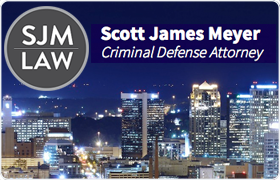Adger RICO Act Lawyer, Alabama
Sponsored Law Firm
-
 x
x

Click For More Info:
-
Law Office of Scott Meyer
1211 28th Street South Birmingham, AL 35205 » view mapJefferson County Criminal Lawyer Success with Scott
Scott James Meyer provides first-class criminal defense representation in Birmingham and the State of Alabama for drug offenses and other felonies and misdemeanors.
800-697-0641  Scott Meyer Birmingham, AL
Scott Meyer Birmingham, ALAttorney At Law - Alabama, 2010
Birmingham School of Law, J.D. - 2009
 Facebook
FacebookFor Additional Information About The Law Office of Scott Meyer
 Contact UsEmail or Call 24/7
Contact UsEmail or Call 24/7Call Today For Your Initial Free Consultation.
Not enough matches for Adger RICO Act lawyer.
Below are all Adger Criminal lawyers.
Marvin E. Simpson
✓ VERIFIED *Status is reviewed annually. For latest information visit hereMarvin Simpson is a practicing lawyer in the state of Alabama. Attorney Simpson received his J.D. from the Birmingham School of Law.
Julian Mardel Hendrix
✓ VERIFIED *Status is reviewed annually. For latest information visit hereJulian Hendrix is a practicing lawyer in the state of Alabama. Attorney Hendrix received his J.D. from the Birmingham School of Law.
Anne Wilson Guthrie
✓ VERIFIED *Status is reviewed annually. For latest information visit hereAnne Guthrie is a practicing lawyer in the state of Alabama. She received her J.D. from University of Alabama School of Law in 2000. Anne works at Wil... (more)
R. Hays Webb
Laura Kristen Segers
Leif Rush Hampton
FREE CONSULTATION
CONTACT

 Scott Meyer Birmingham, AL
Scott Meyer Birmingham, AL Facebook
Facebook Contact UsEmail or Call 24/7
Contact UsEmail or Call 24/7


